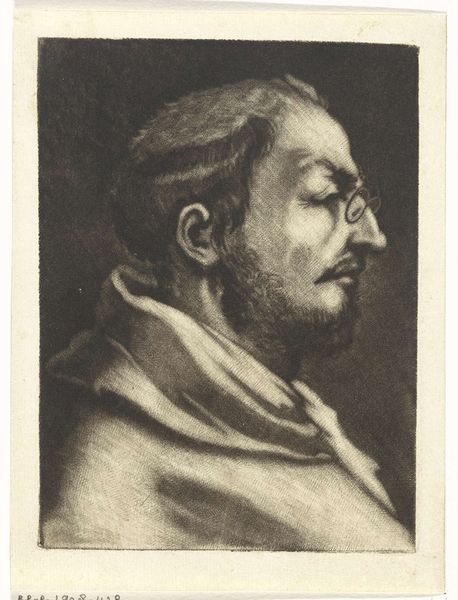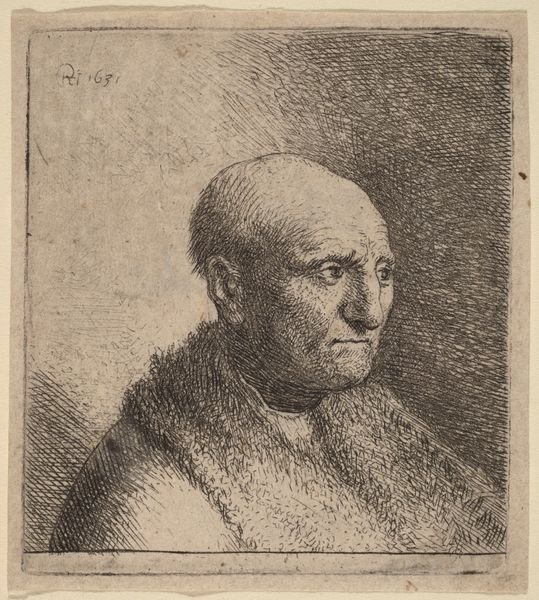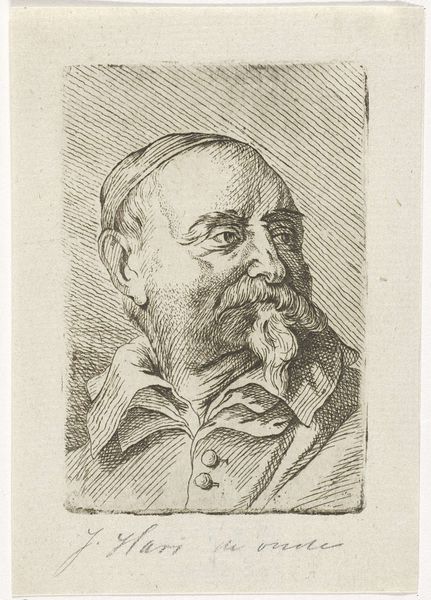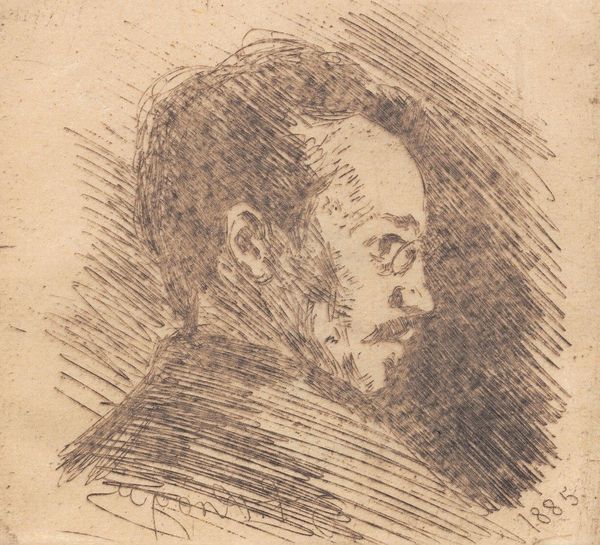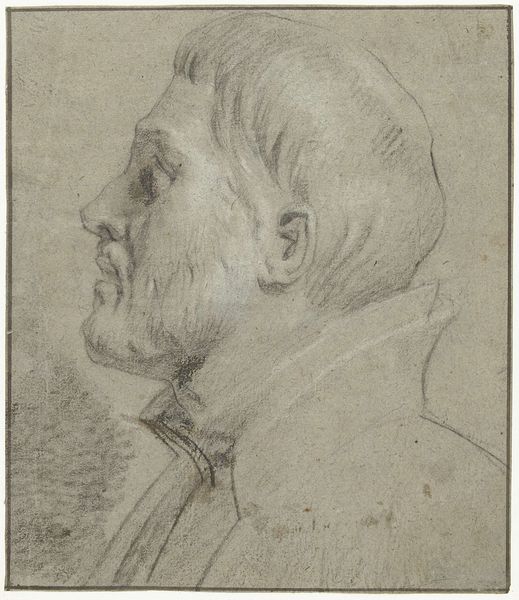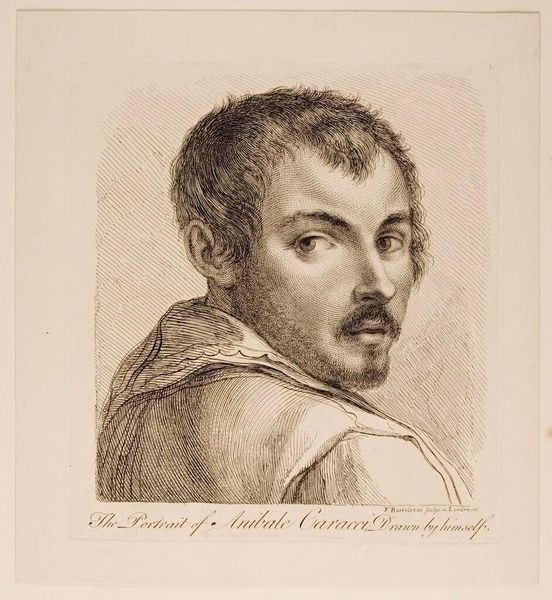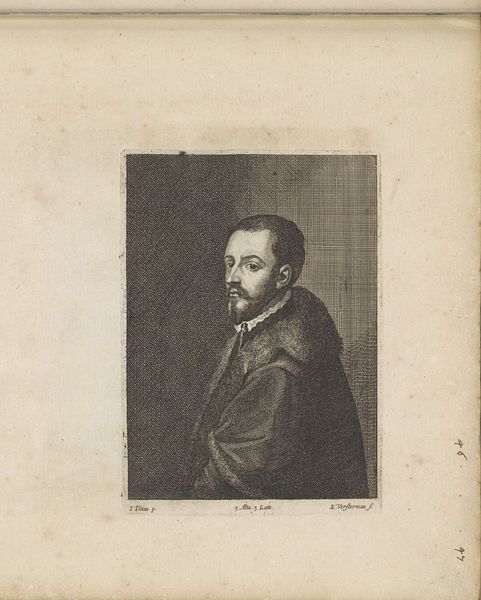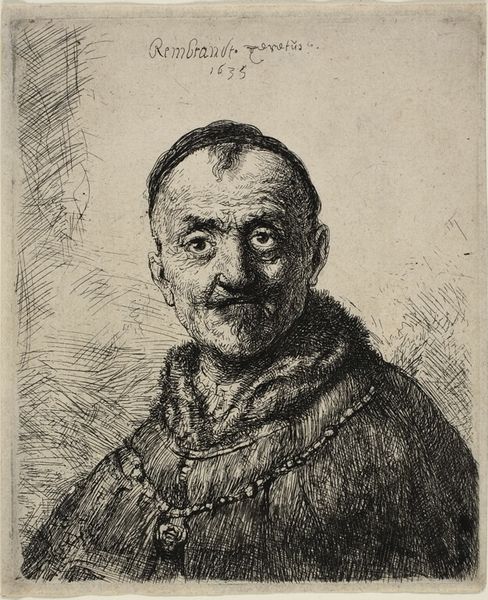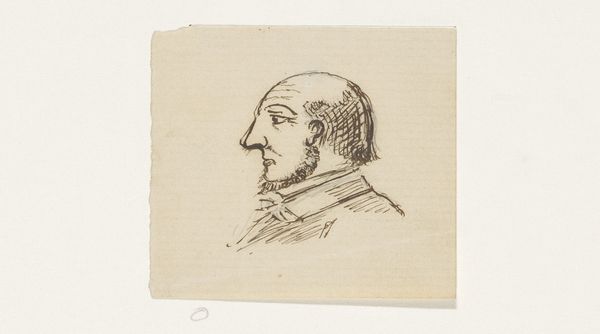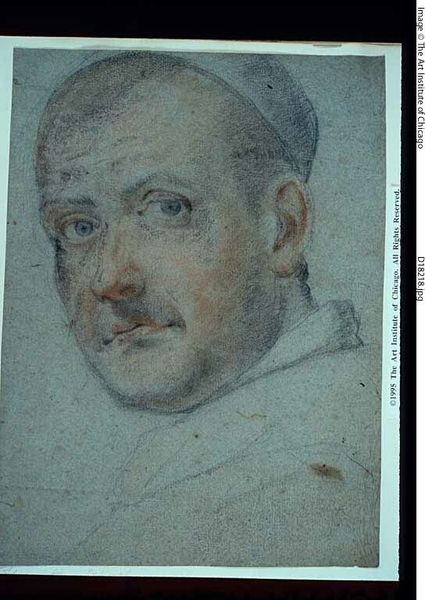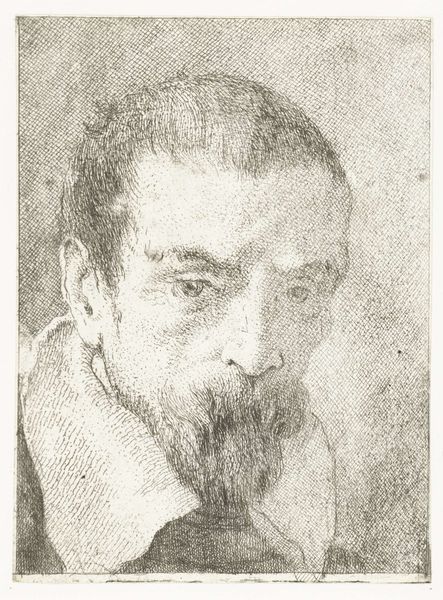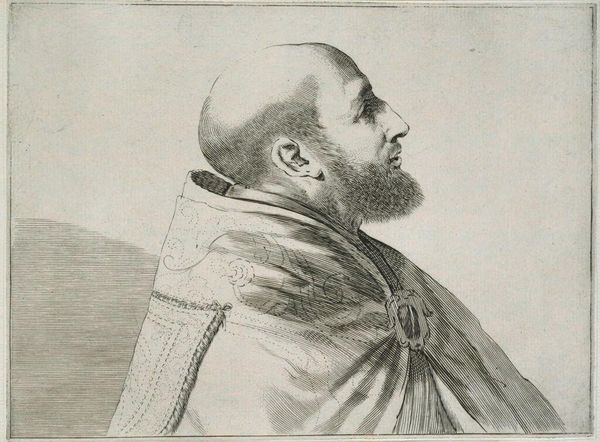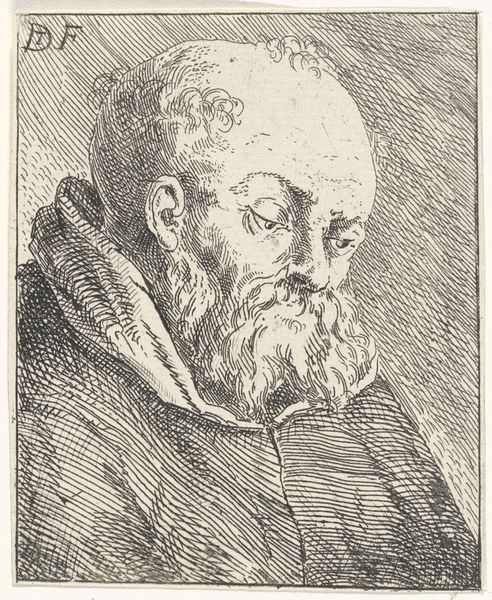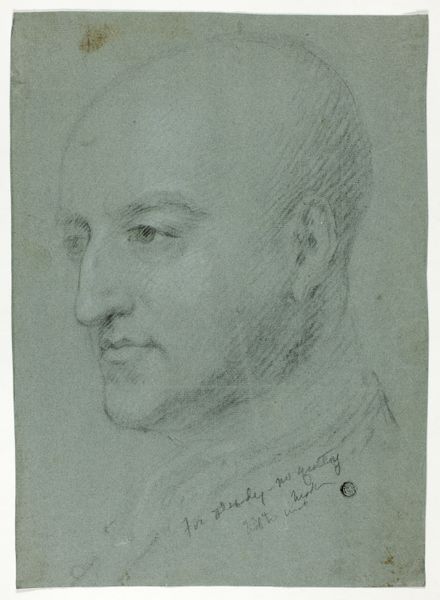
drawing, pen
#
portrait
#
drawing
#
facial expression drawing
#
baroque
#
pencil sketch
#
charcoal drawing
#
charcoal art
#
portrait reference
#
pencil drawing
#
animal drawing portrait
#
pen
#
portrait drawing
#
history-painting
#
portrait art
#
fine art portrait
Dimensions: height 144 mm, width 107 mm
Copyright: Rijks Museum: Open Domain
Matthijs Pool created this print of a monk wearing pince-nez sometime before 1740. It's made using etching, a printmaking technique where acid is used to corrode an image into a metal plate, which is then inked and pressed onto paper. The controlled bite of acid allows for incredibly fine lines and details, seen here in the monk's facial features and the subtle gradations of tone creating depth. The process contrasts with the immediacy of drawing or painting; each print is essentially a multiple, a repeatable image. This reproductive capability was increasingly important during Pool's time. Prints made art and information more accessible to a wider audience, creating a visual culture tied to commerce and the circulation of ideas. Consider the labor involved: the skilled hand of the etcher, the cost of materials, and the mechanics of printing. This work blurs the boundaries between craft and art, inviting us to appreciate the technical skill and social context intertwined in its creation.
Comments
No comments
Be the first to comment and join the conversation on the ultimate creative platform.
